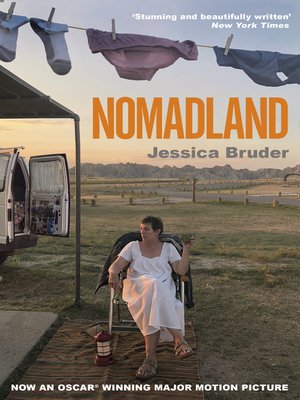

The real-life de facto leader of the “workampers,” Bob (Bob Wells), underscores these ideas in a speech he delivers to his community near the outset of the film. Rather than indicting her for any sort of personal failing that keeps her from steady employment, Zhao rightfully points her finger at the institutions that continually fail Americans. This complicates the steadfast American mentality of pulling oneself up by the bootstraps. In one scene, Fern goes to an employment office and asks for a job, only to be told there were no openings for her.
.jpg)

Though more tender than biting, “Nomadland” is nevertheless unabashed in its critique of capitalism and the American dream. Wandering from town to town, bouncing from job to job, they are nomads in every sense of the word. With no options left, Fern lives in her van and, with some encouragement from a friend, becomes part of a community of “workampers” - a group of older Americans who travel around the country in search of work, living out of campers, RVs and vans. Morrissey’s lyrics are inked all over her body, and she makes a point to read one of her favorites out loud: “Home, is it just a word? Or is it something you carry within you?” These questions lie at the core of “Nomadland,” a meandering, empathetic exploration of being and belonging in post-recession America.īased on Jessica Bruder’s eponymous non-fiction book, “Nomadland” introduces viewers to Fern, who along with her late husband, lost her job in the aftermath of a 2011 mine closure in Empire, Nevada. Early on in director Chloé Zhao’s latest film, an Amazon warehouse worker shows off her tattoos to the movie’s protagonist, Fern (Frances McDormand).


 0 kommentar(er)
0 kommentar(er)
